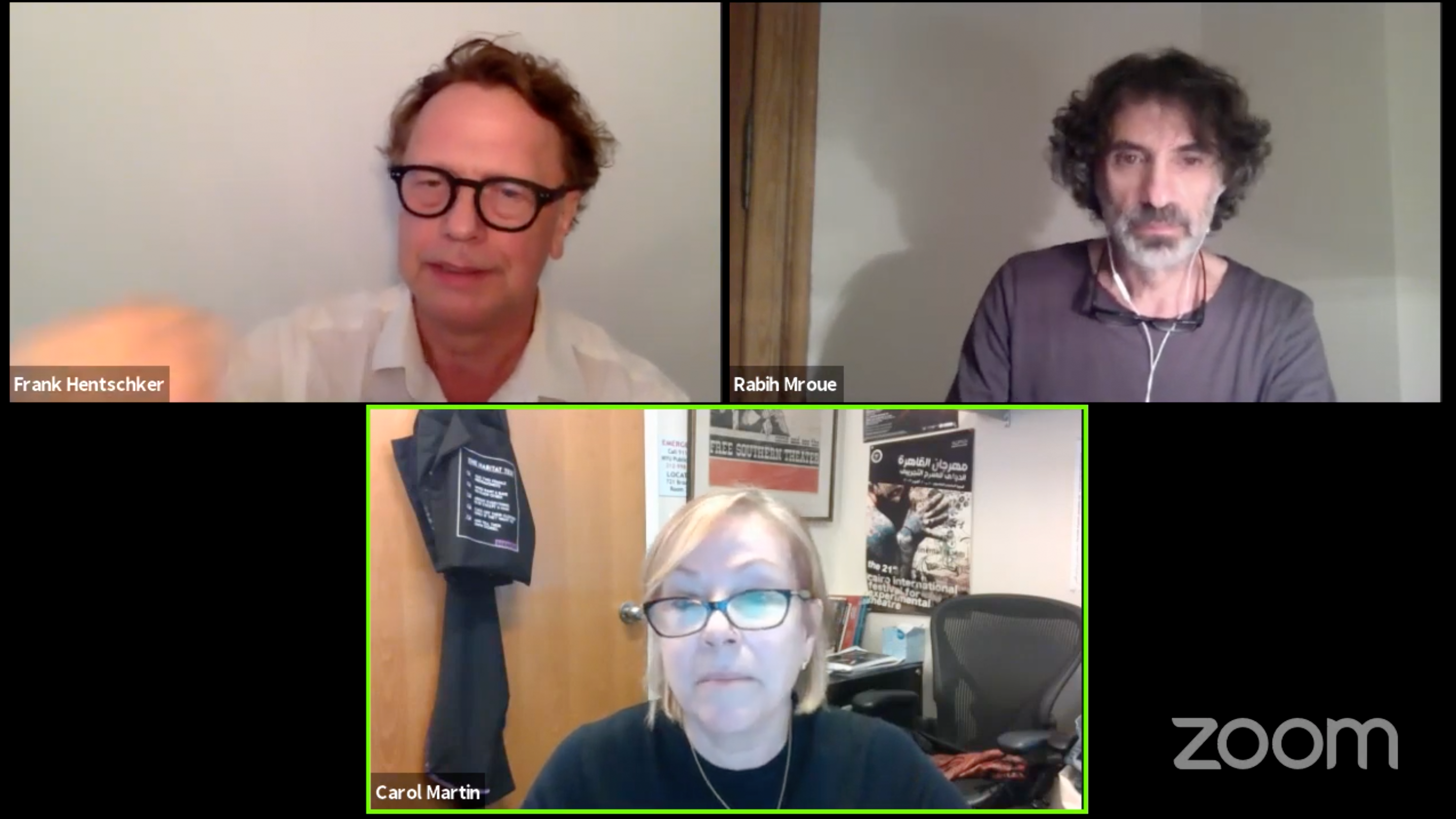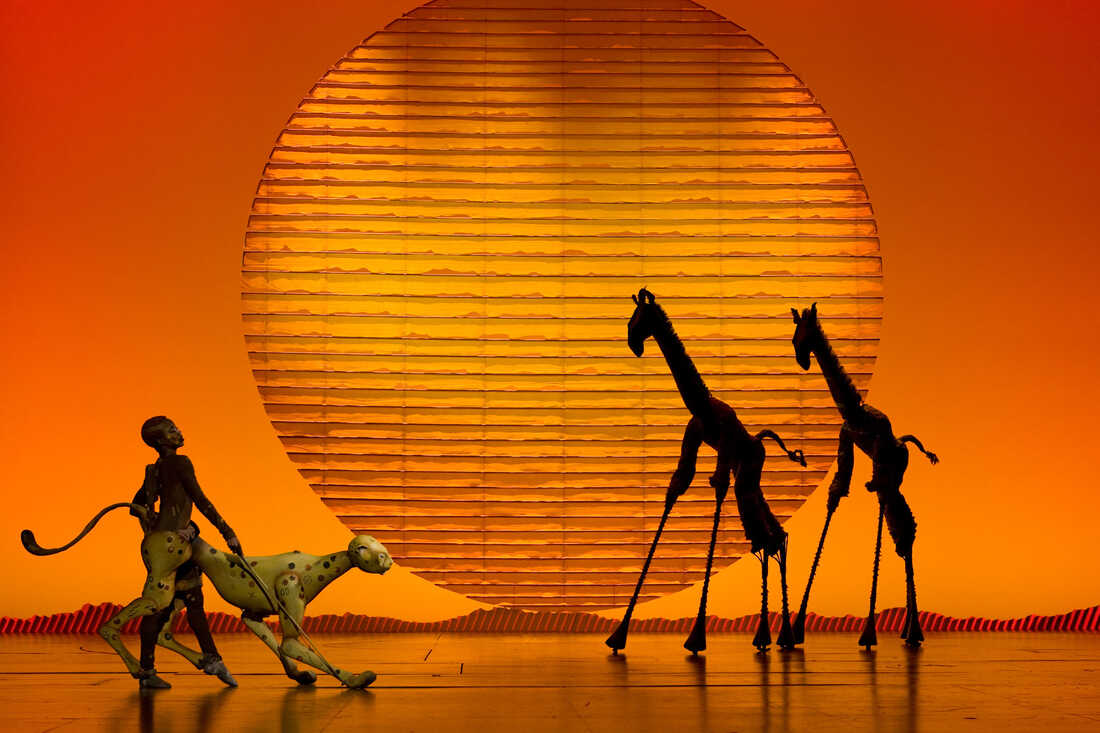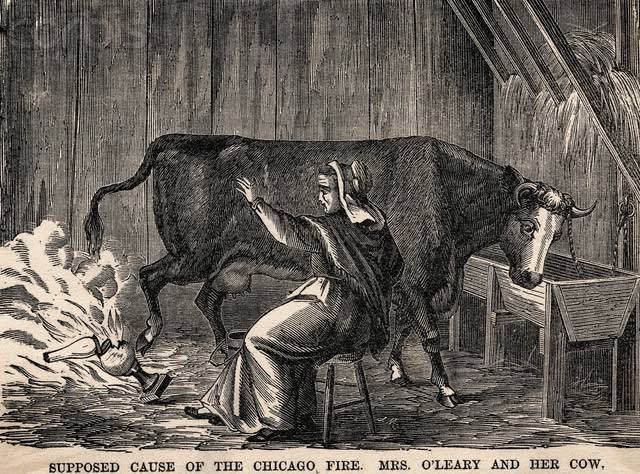In November 2020, Extended Play’s Advisory Board Member Carol Martin interviewed Rabih Mroué alongside Frank Hentschker. Martin, a Professor of Drama at NYU’s Tisch School of the Arts with an extensive career engaging with theater of the real, speaks with Mroué, a theater director, actor, playwright, and visual artist, about his decades of work thinking about contemporary politics of the Middle East, particularly with regards to the Lebanese Civil War. Martin, Mroué, and Hentschker discuss what is fiction, what is real, the role of theater in establishing (or not) what is true, and how theater can evolve through the challenges placed on it by the COVID crisis.
Enjoy this excerpt transcript of the interview which you can watch in full here.
Carol: How do you move from that notion of failure, of doubt, of defeat, to making theater which even when the subject matter is tragic, it is maybe, I’d have to think more about this, but inherently, it’s a positive enterprise? It says that we can look at this and we can do this and we will have a positive outcome in doing that even when we’re looking closely at something tragic.
Rabih: Yeah, actually, one of the things that we faced immediately, it was during and immediately after the civil war ended, the fighting ended of the civil war in 1990, is that we were facing a lot of problems. One of them, a lot of journalists, a lot of curators, theater directors, they wanted us to tell them about the war, about what we experienced. So, they wanted us actually to tell the horror of the war, what our sufferings were and, to be honest, there was a bunch of artists that, we are friends, we were meeting a lot together, and there were others that we did not meet, but we were conscious of this problem. And that actually, we should not fall into this trap, to tell what happened to us, because this actually calls up sympathy, calls people to pity us and we don’t need this. What we needed actually was a reflection to think about what we had passed through, to analyze, to auto-criticize what we have done during these years. So, all the artworks, what we have done, was focused on thinking about the war, not telling the war and this actually shifts the whole concept of what and how to do an artwork or a theater piece. When you say “I want to think about the war, not to tell the war,” it’s a completely different issue. And this is actually something that demands from the artist and from the theatermaker the capacity to provoke oneself, to attack and to criticize yourself, not the audience, not the others, and to demand from yourself a lot of things. So, this was the main key of how to shift from drama or theater that tells the suffering and the horror into a theater which analyzes and thinks and reflects upon sensitive topics like, for example, the one you mentioned, Three Posters, about the martyrs from the communist party.
Carol: How did audiences respond initially to this invitation to think, to analyze, to take responsibility?
Rabih: I think, in my experience, it was, amazingly, very good… it’s not something that you say and you tell and then you need an agreement or a disagreement. It’s not about this, it’s not about posing a question that needs an answer of yes or no. It’s not about this, it’s about doubt, as you mentioned, it’s about unfinished stories, a story that is full of gaps, a story that is non-linear. You have to put it in your mind, representations that are done by words which makes each one of the audience responsible to create her or his image in his imagination or her imagination in your mind. So, it gives a lot of freedom to interpret, a lot of freedom to put your input, to put in your intervention. This actually was successfully good in my experience in Lebanon and outside of Lebanon. Even outside of Lebanon because the questions become not necessarily addressed to the local situation. The foreign audience will miss the answers from our history, but even they can make associations with their own histories and try with their own experiences to try and reflect upon this from their own point-of-view, from their own experience. And this was really great and we never heard something like sympathy. Like “oh, I feel it, I’m in solidarity with you.” No, no, it’s not about solidarity. It’s not about sympathy, it’s not about pity, it’s not about gaining voices. We are not making elections to gain more voices and voting, you know what I mean? It’s something that I share with the audience, we share with the audience, ideas, thoughts, doubts, uncertainties, questions that they have to think about with us so we think all together. And this is important.
Rabih Mroué, is a theatre director, actor, visual artist and playwright. He born in Beirut and currently lives in Berlin. Mroué’s work engages with the contemporary politics of the Middle East and the enmeshed history of discord in the region, often drawing from his personal experience of the Lebanese Civil War (1975–1990).
Carol Martin, Ph.D. is a Professor of Drama at Tisch School of the Arts, and Affiliated Faculty at New York University, Abu Dhabi. Martin serves on the Advisory Board for Extended Play. Her books include: Theatre of the Real and Dramaturgy of the Real on the World Stage. Her book series, “In Performance,” includes international anthologies of plays and performance texts and is published by Seagull Books. Martin has been awarded several fellowships including: Visiting Professor Fellowship at Tokyo University, Komaba, Graduate School of Arts and Science; Fulbright Senior Specialist Fellowship; a Fulbright to India; and a National Endowment for the Humanities (NEH) Summer Seminar Fellowship.
Extended Play is a project of The Civilians. To learn more about The Civilians and to access exclusive discounts to shows, visit us and join our email list at TheCivilians.org.










